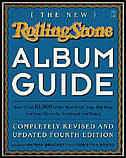| Working Drafts and Notes For: [The New] Rolling Stone Album Guide |
 |
Fela Kuti
Old Version
| Music of Fela (1972; Makossa International, 1975) | |
| Music of Fela, Volume 2 (1974; Makossa International, 1975) | |
| Upside Down (1976; Celluloid, 1990) | |
| Unnecessary Begging (1976; Makossa International, 1982) | |
| Zombie (Mercury, 1977) | |
| No Agreement (1977; Celluloid, 1985) | |
| Shuffering and Shmiling (1978; Celluloid, 1985) | |
| Black President (1981; Capitol, 1984) | |
| Original Sufferhead (1981; Capitol, 1984) | |
| Original Sufferhead (1984; Shanachie, 1991) | |
| Live in Amsterdam (Capitol, 1984) | |
| Army Arrangement (Celluloid, 1985) | |
| Army Arrangement: Original Version (Celluloid, 1985) | |
| Teacher Don't Teach Me Nonsense (Mercury, 1986) | |
| Beasts of No Nation (Shanachie, 1989) | |
| O D O O (Shanachie, 1990) | |
| WITH GINGER BAKER | |
| Live With Ginger Baker (1971, Celluloid, 1985) | |
| WITH ROY AYERS | |
| Music of Many Colours (1980, Celluloid, 1986) |
A lot of pop singers fancy themselves threats to the establishment, but few can claim to be the genuine annoyance. Fela Anikulapo Kuti has been to various Nigerian regimes over the last two decades. In 1977, for instance, his personal compound outside Lagos was attacked and razed by troops acting on orders of the nation's military government; in 1984, he was imprisoned (by a subsequent military government) on spurious currency charges, and languished in jail for two years until yet another government freed him. And the source of his troubles, almost without exception, has been his music -- specifically, his bitingly political lyrics, and the insistently hypnotic beat that has carried those words to his audience over more than 50 albums.
For listeners outside Nigeria, Fela's political harangues aren't always easy to follow, particularly since he sings in a combination of English and patois. But his sound -- a blend of highlife, jazz and American soul which he dubbed "Afrobeat" -- needs no translation. Indeed, his reputation among rockers is surprisingly strong; Ginger Baker recorded with him in 1971, Paul McCartney described Fela's live show as one of the most astonishing performances he'd ever seen, and Talking Heads cited his band as an inspiration for Remain in Light.
With so much to choose from (even given the limited U.S. release of his albums), it's hard to know where to start. Few of Fela's albums offer more than two songs -- which is not as miserly as it seems, considering that the average Fela tune clocks in at 15 minutes or longer -- meaning that most of his albums emphasize a single groove. His output is surprisingly consistent, meaning that almost any Fela title will be worth hearing. Zombie is a particularly fine example of his '70s band, boasting sharp horn work and a loping, muscular pulse; the feisty Original Sufferhead and Black President (which features the catchy "I.T.T.") are also recommended. Of his more recent material, both versions of Army Arrangement are good, but the original version has a little more edge than Bill Laswell's beefed-up remix. And though Beasts of No Nation is a bit spotty, the brutally relentless O D O O is one of his strongest albums to date.
Still, the best buys at this point tend to be CD compilations like Shanachie's reissue of Original Sufferhead, which includes "Original Sufferhead" itself as well as all of the Capitol album, Black President, thereby delivering a sizeable serving of prime Afrobeat. Also worth seeking are any of the four-volume Fela series on the French Baya label, which packages much of his '70s output in double-length CDs. -- J.D.C.